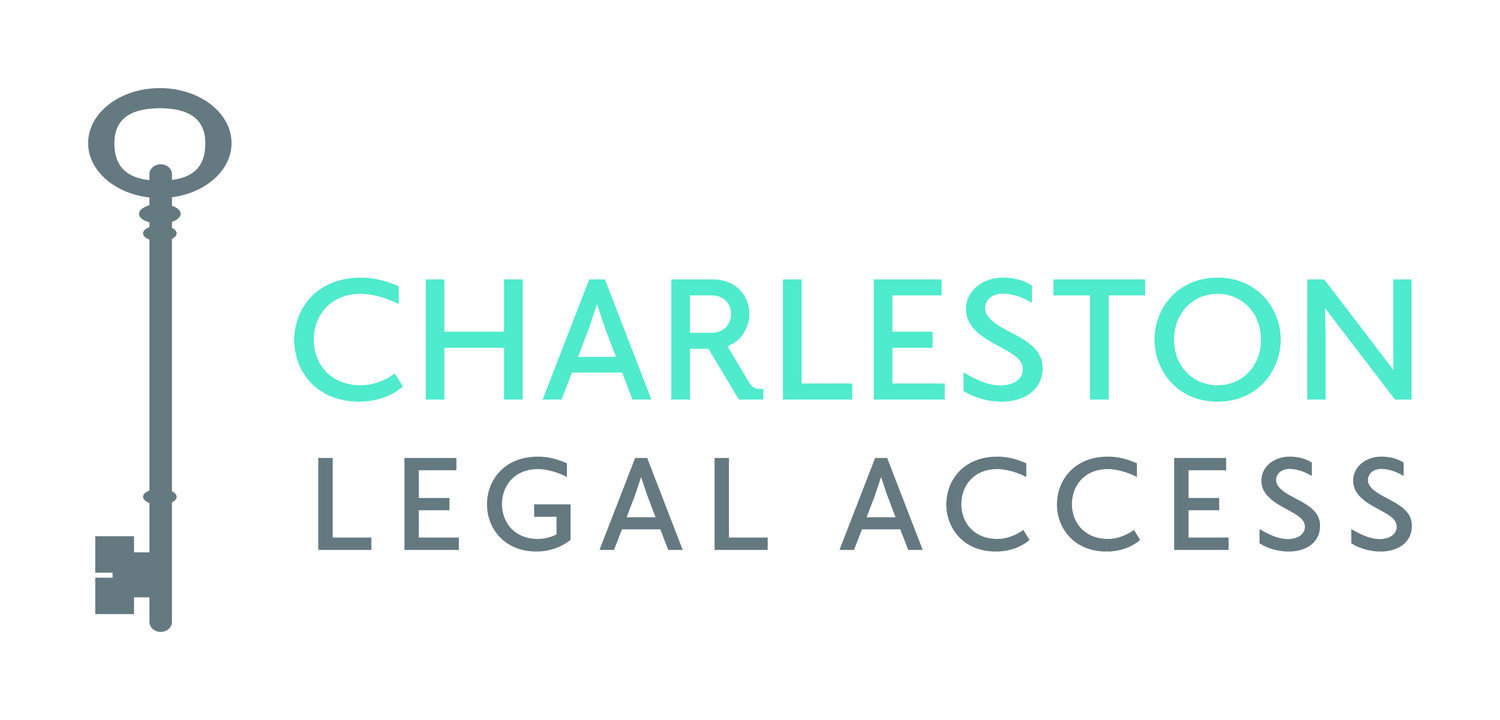CLA's Staff Attorney Lisa Russell sat down with My Sister's House CEO Tosha Connors and Scott McNeish, Head of Family Law with the Charleston office of South Carolina Legal Services, to discuss Orders of Protection and Restraining Orders for SC Domestic Violence Victims.
These are difficult questions to face, especially when someone is experiencing trauma, but there are several resources to help. If you or someone you know needs assistance, please connect with My Sister's House or Charleston Legal Access.
DISCLAIMER: This recording is intended only as a general, informational overview of legal protections for victims of domestic violence in the South Carolina Lowcountry. It is not intended as individual legal counsel and should not be used as such. Please consult a licensed attorney (pro-bono and sliding scale attorneys are available for domestic violence victims in SC's Charleston, Dorchester, and Berkeley counties) for guidance and counsel in filing for an Order of Protection, Restraining Order, or other cases involving intimate partner violence.
What is the difference between Orders of Protection and Restraining Orders?
The abusers behavior determines which one you need. The victim should talk to an attorney to determine which one best fits their circumstances, because there is overlap. It is a factual decision based on nuances that an attorney can help distinguish.
““The first step in deciding which option to take, is knowing all of your options. That’s where we come in. We are professional problem solvers. We will give you your options.””
Orders of Protection
• Family Court
• Offers the protection of a restraining order, plus additional relief. Might be needed in cases where children's custody or other factors are involved.
• Can only be for household members: cohabitating, spouses, or have children together.
Restraining Orders
• Magistrate Court
• Provides relief from harassment and stalking. For it to qualify, you must demonstrate the unwanted, obtrusive communication or their physical presence intruding on your life more than two times. Must also have communicated that it is unwanted.
What can someone expect when filing for either an Order of Protection or a Restraining Order?
For both, it involves filling out a form at the courthouse. Emergency relief is available if immediate harm is demonstrated, hearings can be held within 24 hours. If not, the petition will be heard within 15 days. The respondent does have to be served and notified that action is being taken against them, but address or contact information of the victim will not be shared.
Once the order is in place, both the victim and the respondent are given a copy. It will also be shared with law enforcement. If it is lost, it can be replaced at the clerk's office in the county it was filed in. It is possible to get additional copies, which are good to have, especially if there are children involved and extras are needed for school etc.
How can someone document abuse in preparation to provide evidence and testimony as a victim of domestic violence?
It is important to show that this has happened more than once, establishing a pattern. If someone thinks they are being watched, they should ask someone to be with them so that they have witnesses to the pattern and can corroborate their story.
What is the role of Court Advocates and Law Enforcement Victim Advocates (LEVA's) in partnership with Attorneys in cases of domestic violence?
Advocates and attorneys have important, but different roles. An attorney's goal is to solve the problem legally and sometimes has to have hard conversations with clients. An advocate can help fill the gap, by being a supportive, knowledgeable guide for the victim. Working in tandem, advocates and attorneys want to protect the victim from further harm.
Additional Resources
Frequently Asked Questions regarding income eligibility and types of services provided by SCLS are covered here:
Legal information for domestic violence victims in South Carolina:
SC Legal Services: Guide to Filing for an Order of Protection in South Carolina:
About Charleston Legal Access
Charleston Legal Access is SC's first and only sliding-scale, nonprofit law firm. We provide affordable legal services at a price that those of moderate means can afford. Hourly rates are determined on an individual basis by a client's income and family size. Our initial screening and phone consultations with an attorney are completely free. In-person, 1-2 hour case consultations and limited assistance sessions are available for a flat fee of $50-$100. For more information please visit www.charlestonlegalaccess.org.
With client fees only making up 15% of our operational budget and a rise in demand for services, we are seeking like-minded partners to support our cause. Help us expand access to justice and legal representation by making a tax-deductible donation below.

